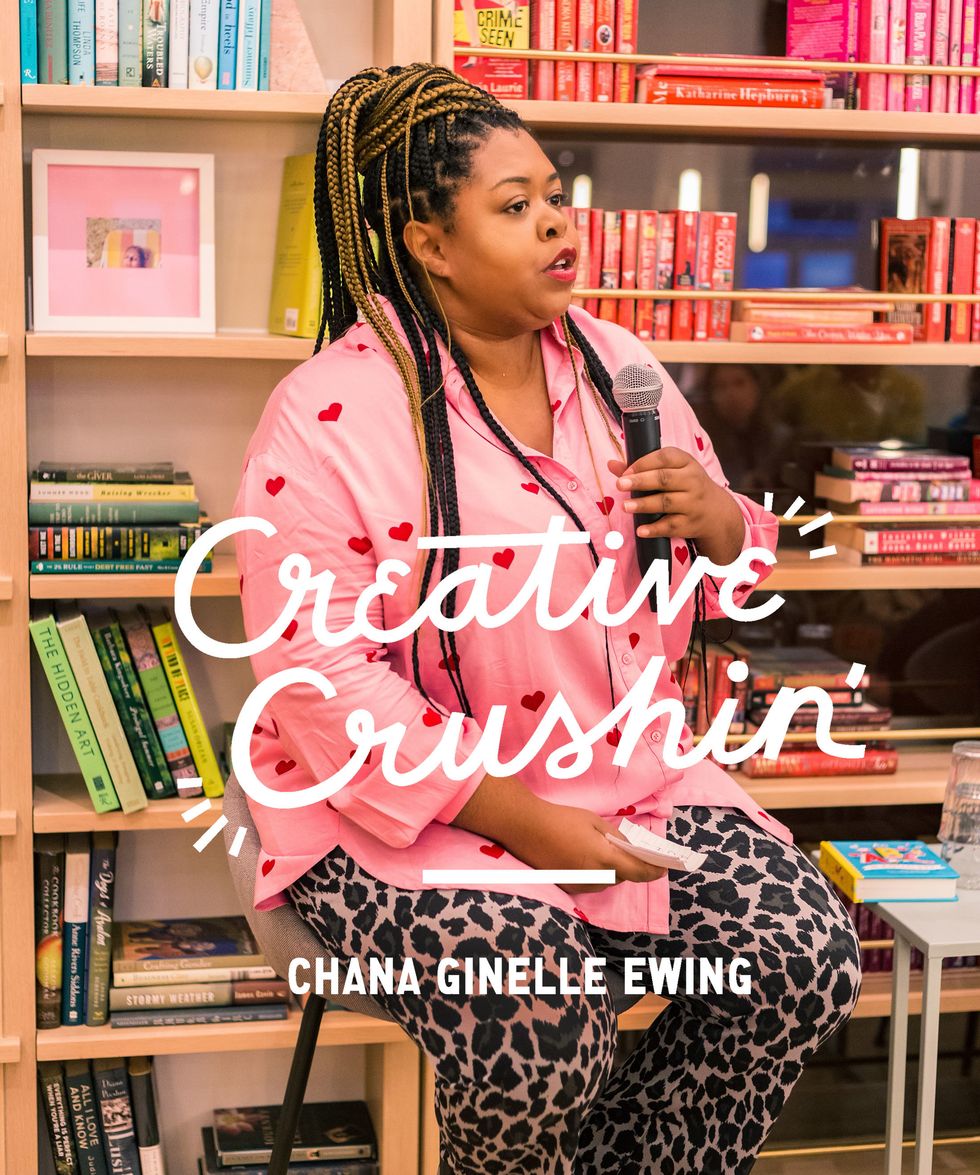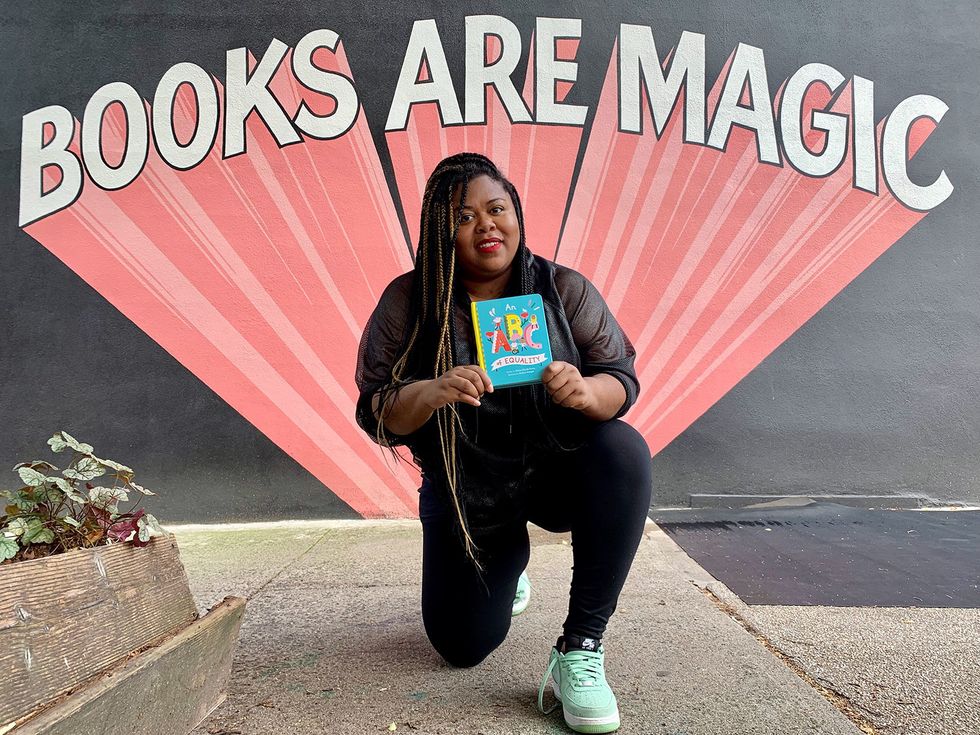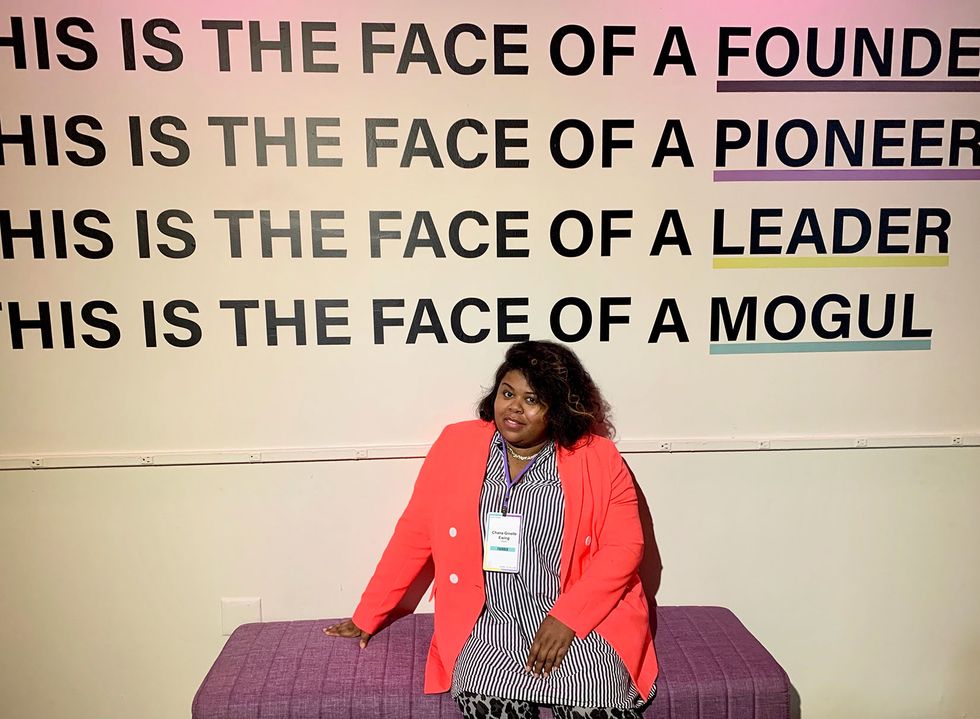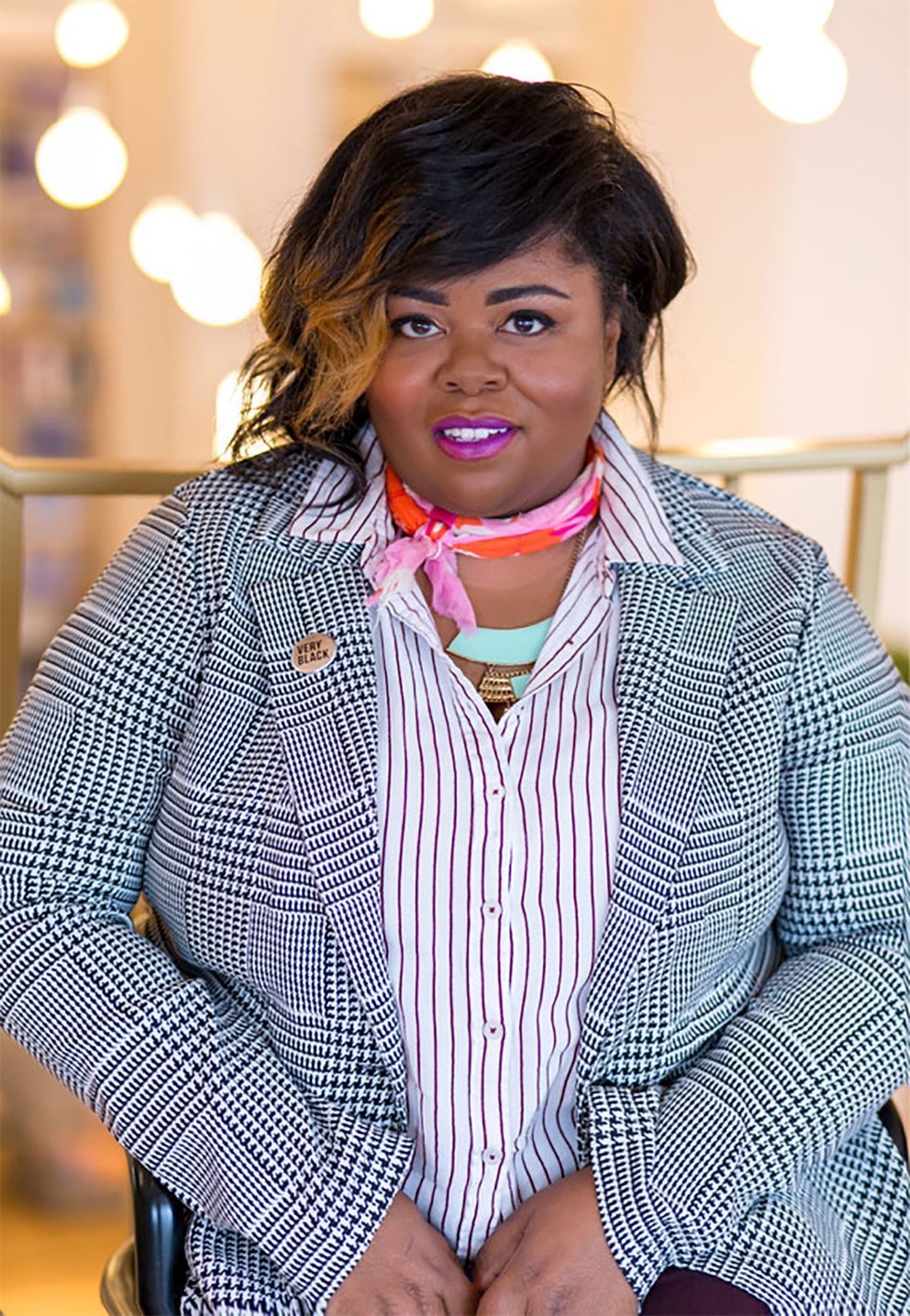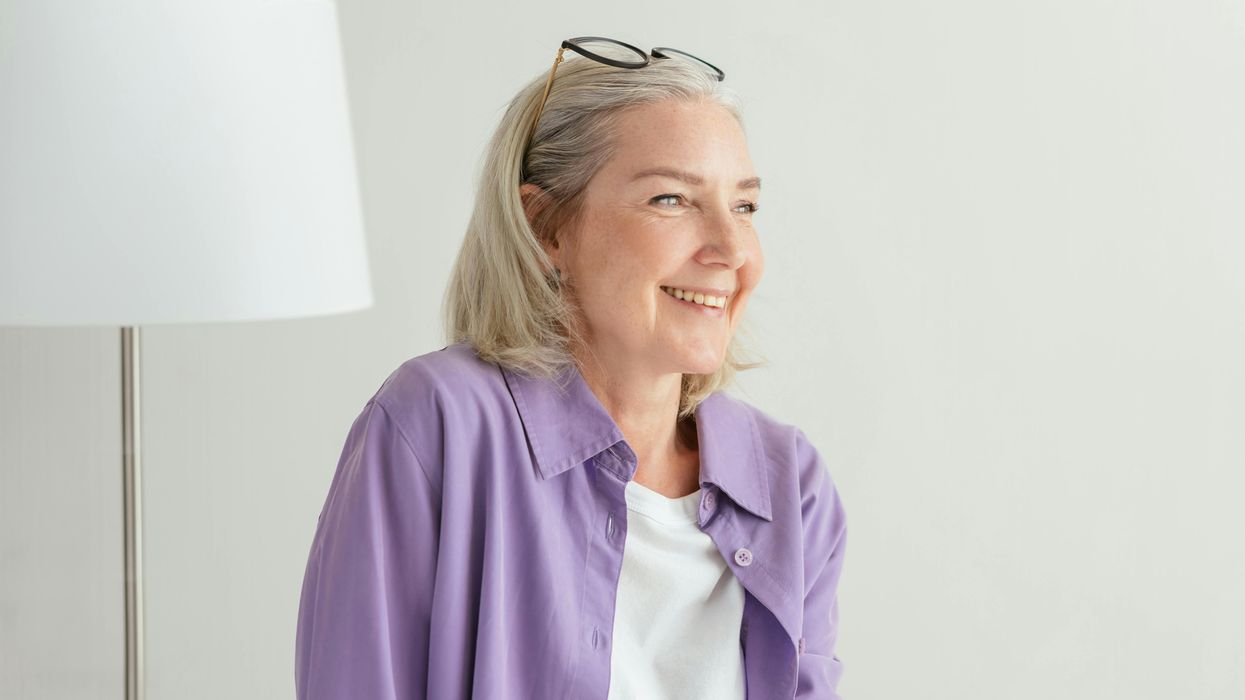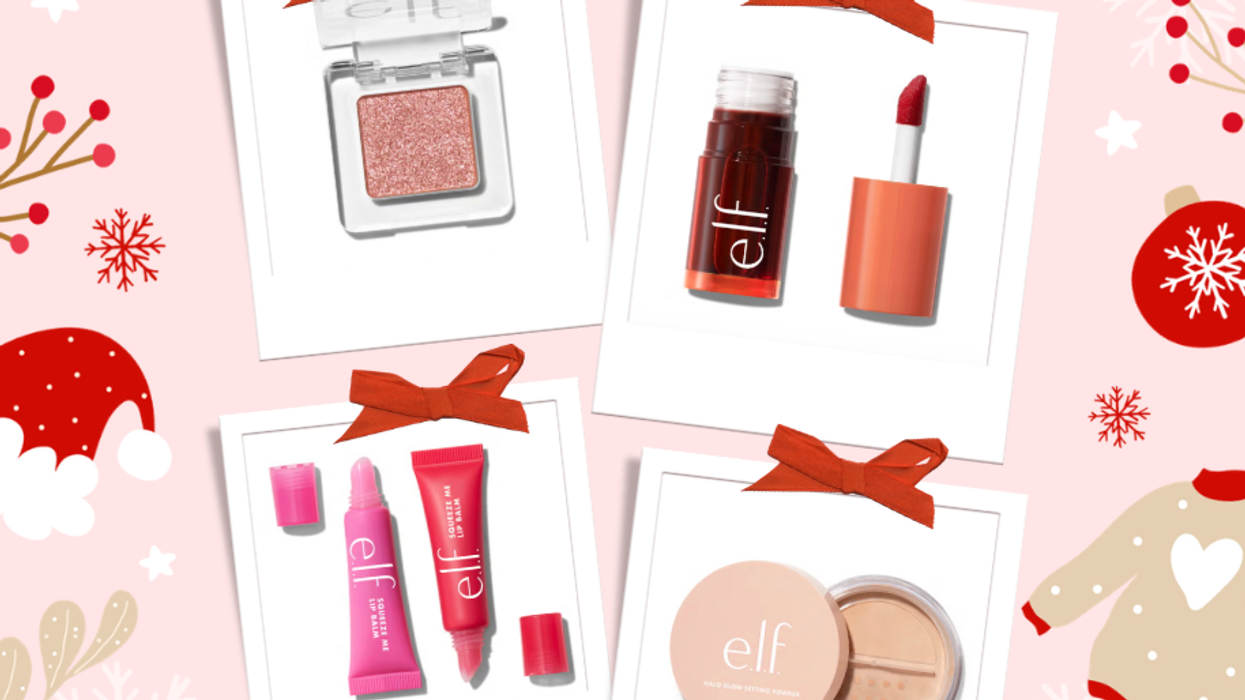"I truly believe that identity is a lever to pull to unlock human potential."
Author Chana Ginelle Ewing On How Identity + Intersectionality Can Unlock Human Potential
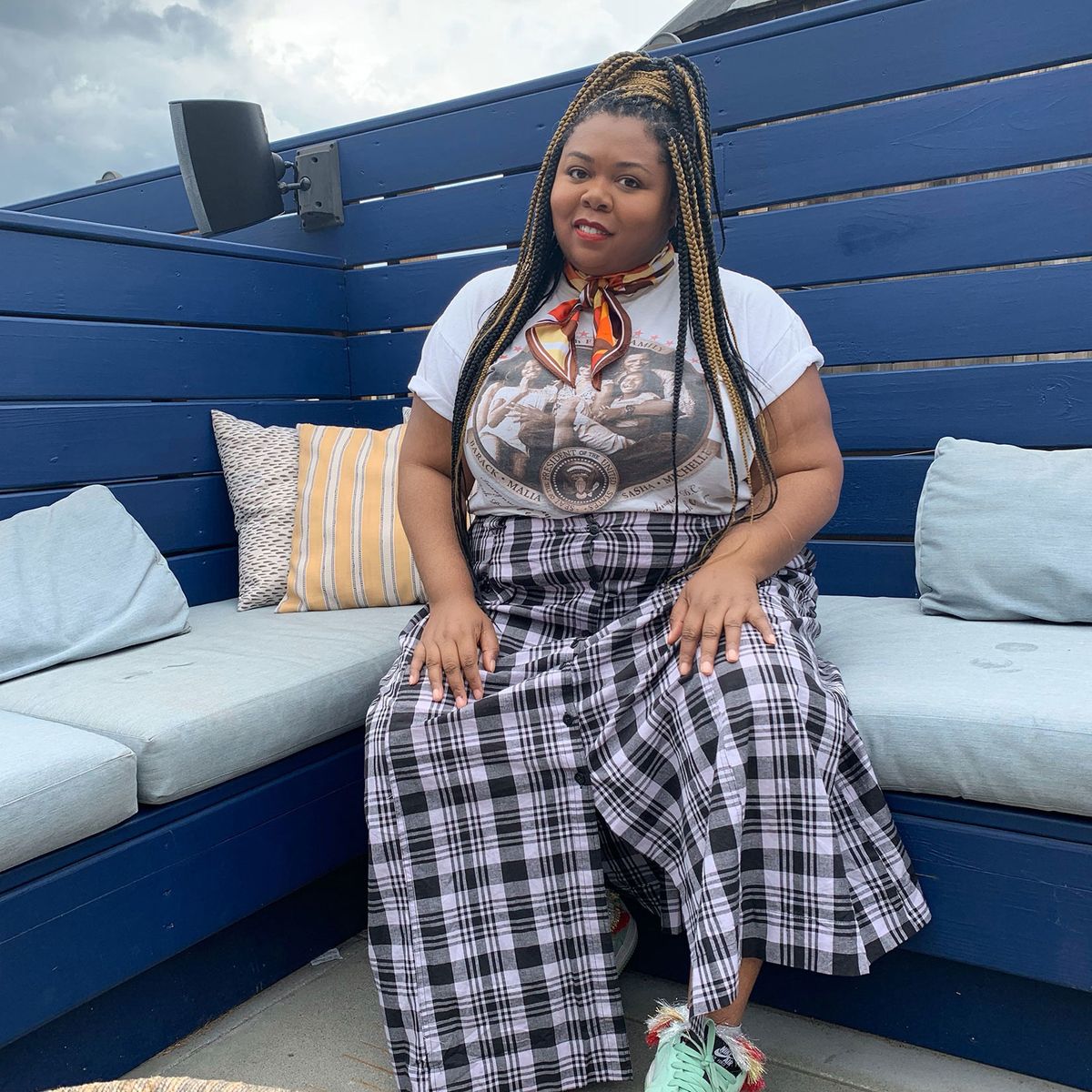
Author Chana Ginelle Ewing On How Identity + Intersectionality Can Unlock Human Potential
It's been a necessary and heavy few weeks. As a culture, we all have so much to learn and unlearn, and I've found myself feeling uncomfortable, hopeful and optimistic all at the same time. Pretty sure those three feelings usually lead to real, true change. And it's thanks to creative humans and entrepreneurs like Chana Ginelle Ewing, the brilliant woman I have the privilege of interviewing in this week's edition of Creative Crushin'.
Anjelika Temple here, Co-founder and Chief Creative Officer of Brit + Co. I recently came across Chana Ginelle Ewing's book An ABC of Equality and was struck by her ability to take huge, grown-up concepts and distill them into a meaningful, historic and action-oriented alphabet for little ones. Read on to learn all about Chana's journey, mission and the brand new project she's working on.
Anjelika Temple: First off, your foundations. Tell us a little bit about your background, where you're from, where you live now, what you studied in school, family life, etc.
Channa Ginelle Ewing: I currently reside in Brooklyn, NY, but I'm originally from Boston where I lived into graduating high school (Boston Latin). I then headed south to the University of Virginia where I received a B.A. in African American/Black Studies.
I spent about a year and half immediately in Boston substitute teaching and eventually event planning before finally moving to Brooklyn. I had a few corporate gigs for my first few years here (UBS Investment Bank and McKinsey & Company) but I KNEW that I wanted to be a creative, full-time. So after a layoff during the recession of 2009, I used my severance to make the leap into entrepreneurship - and haven't looked back since.
AT: What would you say is your north star? What is your mission?
CGE: I have always been passionate about how intersectionality and identity influence our culture. And I truly believe that identity is a lever to pull to unlock human potential. And entrepreneurship is an opportunity to make dents that move culture forward. By bridging these two ideas, I believe I can actively help create a world that mirrors the values I cherish most: owning and standing in your individuality and personal power, creating space and being in community with others, and building the world that you want to see - starting in the mirror.
AT: Tell us a bit more about your career path and journey.
CGE: My journey as an entrepreneur has been marked with some amazing highlights that leverage all my past experiences. I have marketed Oscar-nominated and Emmy award-winning multicultural films with my digital marketing firm littlebigGirl+Co, self-funded a subscription box company centering Black women, and most recently wrote a children's book! It's been an adventure but not without serious capital challenges. I'm excited to move into the next leg of this journey with GEENIE.
AT: I'm personally a huge fan of your book An ABC of Equality and in just the couple weeks we've had it, it's become a favorite of my daughters. What inspired you to write this book?
CGE: Engaging children in topics such as identity is so important so that they can understand their world and how to navigate through it. And it's not something that's always taught in school.
So I wanted to create a tool for parents that could help ignite these conversations in a productive and accessible way. It is meant to be a conversation starter for ALL ages. It's my hope that folx will use it as one of many tools in their toolbox for diving into discomfort.
AT: What other books that introduce identity and social justice concepts to little ones should be on our bookshelves at the moment?
CGE: I can't wait to get my hands on Ibram X. Kendi's AntiRacist Baby; I love all of three of the books in the Jamia Wilson-Andrea Pippins powerhouse team (Young Gifted and Black, Step Into Your Power, and Big Ideas for Young Thinkers); and Alok Vaid-Menon's, Beyond the Gender Binary, is REQUIRED reading.
AT: You recently launched GEENIE. Tell us more about this and what drove you to create this platform.
CGE: GEENIE is reinventing e-commerce to create change. We're building a curated beauty marketplace that mirrors your beliefs.
But more than the marketplace, a shopping community that pairs independent beauty brands with consumers looking to buy based on their values.
By curating a selection of value-driven brands, from BIPOC-founded to sustainably sourced and inclusively-designed lines, GEENIE enables consumers to put their money where their mouth is (OKKK!) and build a world that matches their beliefs.
AT: I know that conversations around identity and intersectionality are key to what drives you. Tell us more about why it's important to dialog about these topics on a regular basis, not just when the news/social media tells us to.
CGE: The challenges being faced by Black folx won't disappear when the news coverage stops. And neither will our commitment to living our full, healthy, safe and joyful lives.
Intersectionality speaks to the unique challenges that one faces living in multiple identities - my experience as a Black, queer, raised working class woman for instance informs how the world engages me and also how I engage the world. The intersections of oppression that happen at these identities.
I also like looking at the intersections of power at these points. How I GET to see myself, my people(s) - our brilliance, resourcefulness and creativity. Intersectionality is a useful lens for understanding the world around us.
A fast news cycle, a social media moment, will not interrupt the momentum that we're all feeling. This society is moving forward, and it's best that folx jump in and decide to be apart of the shifts.
AT: What are some of your favorite indie beauty brands our readers should know about?
CGE: A few that I loved that we sold in GeenieBox: Cocolene; Danessa Myricks Beauty; LipBar.
AT: What advice can you offer Black women entrepreneurs who are thinking about going off on their own?
CGE: Black women are some of the most ambitious in the world, but are highly under-resourced and under-estimated.
We are passionate and driven, despite challenges.
My one prevailing piece of advice is to continuously cultivate your inner wisdom.
Go into entrepreneurship with an open mind but always, always listen to your inner guide.
And at the same time, know you can't do it alone. You will reach a point where you will need help to move your business forward. Reach out to people in your network, cold call, pitch ideas and ask for help because you need to take chances. If you don't open yourself up to rejection, you could close yourself off to success too.
AT: Tips to share with our readers who are delving headfirst into learning how to be better allies?
CGE: Decide to be uncomfortable.
Decide that you will get it wrong, that you don't know all the answers, and that you will continue to show up anyway.
Allyship is not a destination. It is ongoing, and you get to do this work for yourself (growing in one's humanity is always a good idea) as much as for anyone else. Excited for you to do the work.
Follow Chana Ginelle Ewing on Instagram @chanaewing, and be sure to follow @geenieworld -- the new GEENIE marketplace launches July 15th. Join the mailing list at Geenie World to stay up to date.


